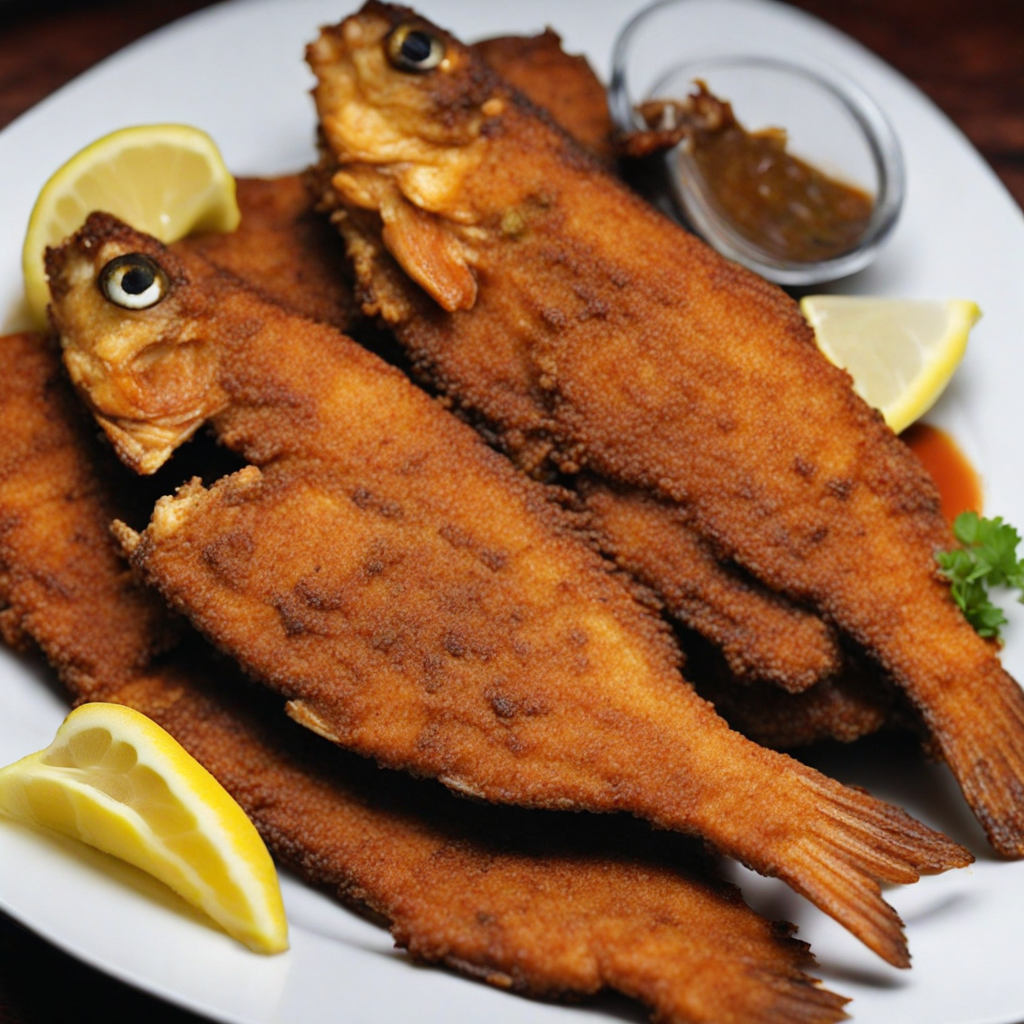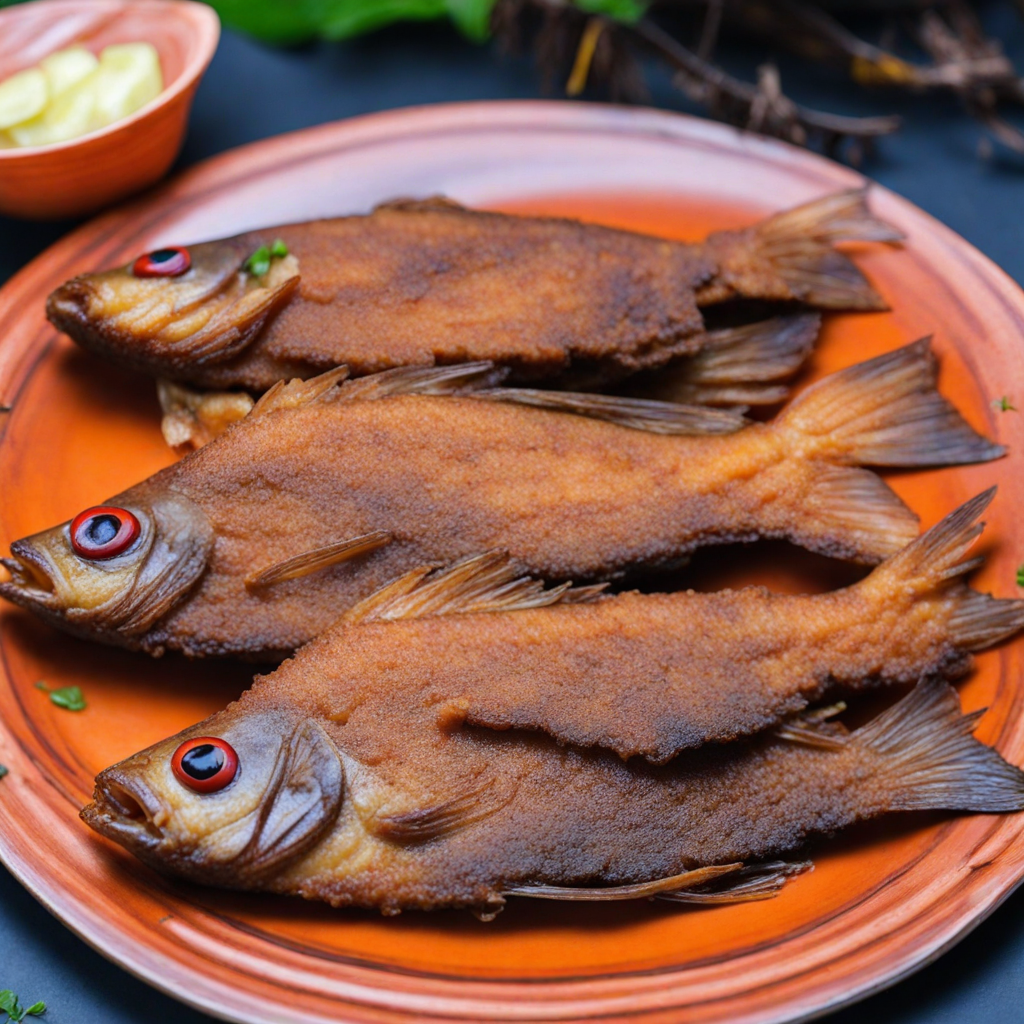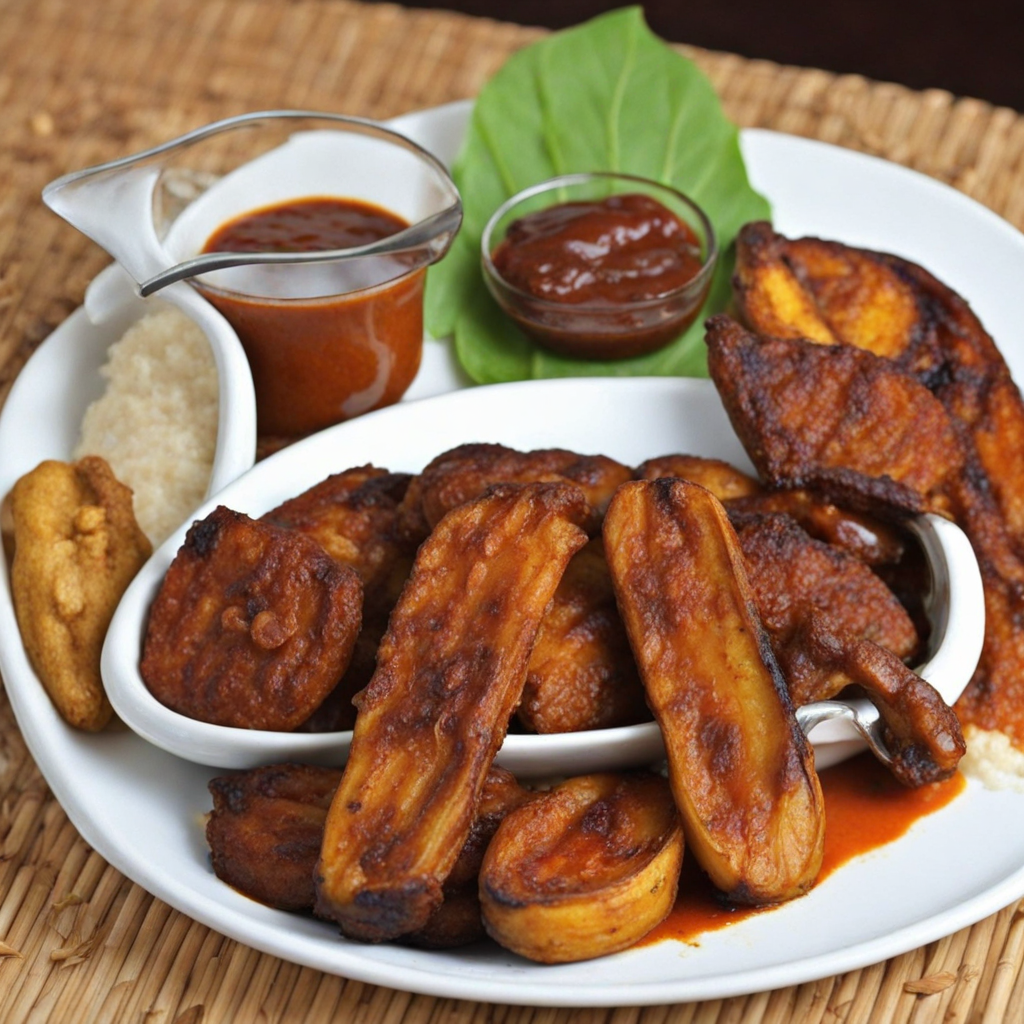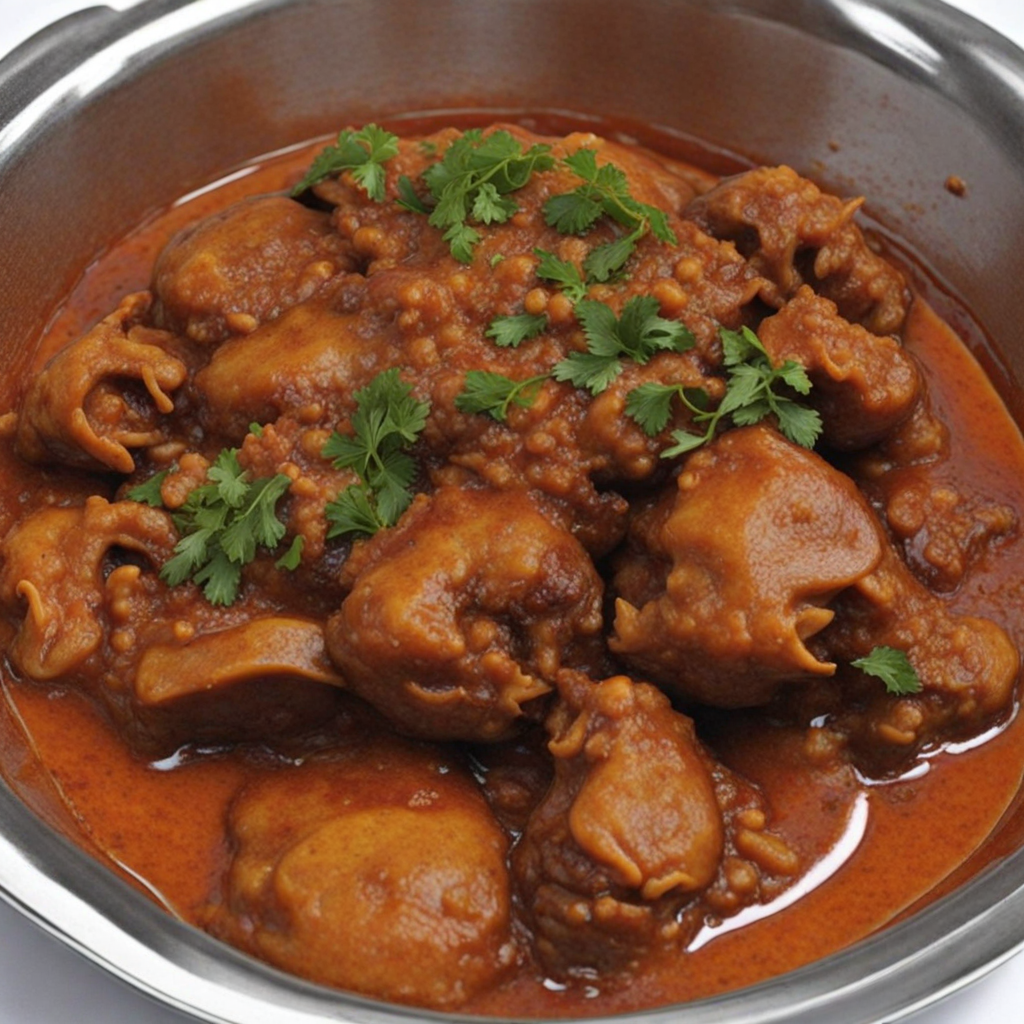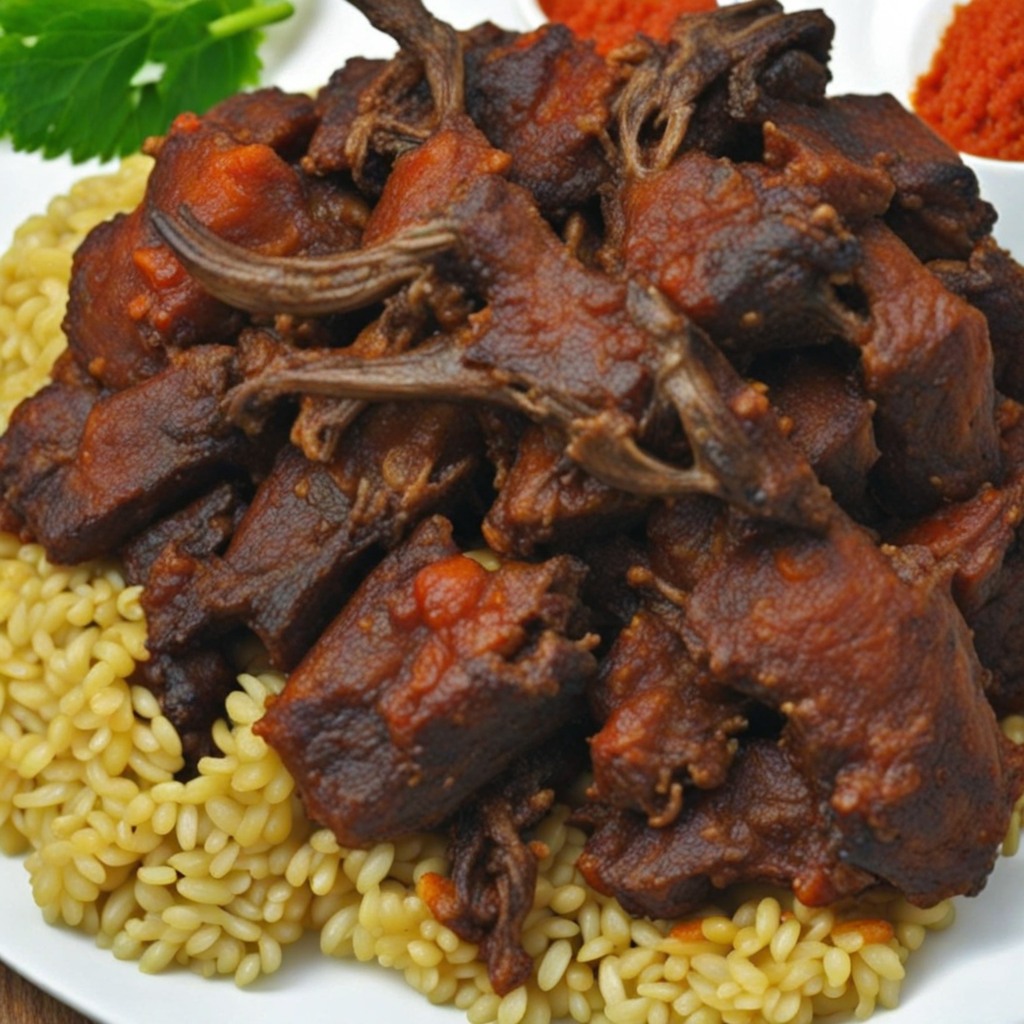Fried Fish
Fried Fish, a beloved dish in Nigeria, offers a delightful explosion of flavors that encapsulate the rich culinary heritage of the country. Typically made using fresh fish, such as tilapia or catfish, the fish is marinated in a blend of spices, including a mix of garlic, ginger, and local seasonings like pepper and thyme. This marinade not only infuses the fish with vibrant flavors but also enhances its natural sweetness. Once marinated, the fish is coated lightly in flour or cornmeal before being deep-fried to a perfect golden brown, resulting in a crispy exterior that contrasts beautifully with the tender, juicy flesh within. As you take your first bite of Fried Fish, you'll experience a satisfying crunch followed by the tender, flaky meat that melts in your mouth. The spices used in the marinade create a symphony of tastes that dance on your palate—spicy, savory, and slightly tangy, all at once. This dish is often served with a side of spicy pepper sauce or a zesty vegetable salad, which adds a refreshing element that complements the richness of the fish. The combination of textures and flavors makes Fried Fish not just a meal, but a celebration of the senses. In Nigeria, Fried Fish is often enjoyed during gatherings and festivities, making it a dish that brings people together. It can be served alongside traditional sides like jollof rice or yam porridge, allowing for a wonderfully diverse dining experience. Whether you're sampling it at a bustling street market or in a family home, Fried Fish embodies the warmth and vibrancy of Nigerian culture, inviting you to savor the essence of a truly unique culinary tradition.
How It Became This Dish
The Rich History of Fried Fish in Nigeria Fried fish is more than just a culinary delight in Nigeria; it is a profound cultural symbol, intertwined with the traditions and identities of various ethnic groups throughout the country. From its origins to its development over time, fried fish showcases the intricate relationship between food, culture, and history in Nigeria. #### Origins Fish has been a staple in the Nigerian diet for centuries, particularly due to the country's extensive waterways, including the Atlantic coastline, rivers, and lakes. The early inhabitants of the region relied on fishing as a primary source of sustenance, leveraging the rich biodiversity of the waters. The geographical diversity of Nigeria, from the Niger Delta to the northern rivers, has influenced the types of fish consumed, including tilapia, catfish, and mackerel. The art of frying fish is believed to have been introduced through indigenous cooking practices, where fish was traditionally dried or smoked. The method of frying emerged as a practical adaptation, allowing for quicker preparation and a more flavorful dish. As frying became a common technique, it was infused with local spices, herbs, and cooking oils, enhancing the taste and appeal. The use of palm oil, particularly in southern Nigeria, became prevalent due to its availability and unique flavor, which further characterizes the dish today. #### Cultural Significance Fried fish holds a special place in Nigerian culture, symbolizing communal gatherings, celebrations, and everyday meals. It is a versatile dish enjoyed across various ethnic groups, including the Yoruba, Igbo, and Hausa, each with its unique preparation styles and accompanying sauces or sides. In Yoruba culture, fried fish is often served during festivities, such as weddings and religious ceremonies. The fish is frequently marinated with traditional spices, then fried until crispy, creating a dish that is both visually appealing and delicious. The Yoruba also have a saying, "Ikan alala, o le fo" (A fish that does not swim cannot be fried), which highlights the significance of fresh fish in the preparation of this dish. The Igbo people also hold fried fish in high regard, often serving it as an accompaniment to traditional dishes such as jollof rice or yam porridge (akara). The preparation methods may vary, but the common thread is the emphasis on freshness and flavor. In communal settings, fried fish is often shared among family and friends, reinforcing social bonds and cultural heritage. In northern Nigeria, fried fish is incorporated into various dishes, often alongside grains such as rice or maize. The Hausa people have their unique take on fried fish, often seasoning it with spices like pepper and ginger, showcasing the regional diversity in fish preparation and consumption. #### Development Over Time As Nigeria's culinary landscape evolved, so did the preparation and presentation of fried fish. The introduction of modern cooking techniques and the globalization of food culture have led to new interpretations and adaptations of this classic dish. In urban centers, fried fish is commonly found in street food stalls and restaurants, appealing to a broader audience and accommodating contemporary tastes. The rise of fast-food culture in Nigeria has also impacted the preparation of fried fish. While traditional methods remain popular, many have embraced quicker, more convenient frying techniques, often using deep fryers and pre-marinated fish. This shift has not diminished the cultural significance of fried fish but rather adapted it to the pace of modern life. Moreover, the increasing awareness of health and sustainability has influenced how fried fish is prepared and consumed. While palm oil remains a staple, there is a growing trend toward healthier oils and methods, such as grilling or baking, without compromising the essence of the dish. This evolution reflects a broader global movement towards healthier eating habits while honoring traditional flavors and practices. #### Fried Fish in Contemporary Nigerian Cuisine Today, fried fish is celebrated not only for its taste but also for its role in fostering community, heritage, and identity. It is featured prominently in restaurants, at family gatherings, and during festivals. The dish is often paired with traditional Nigerian staples such as yam, plantains, or rice, creating a balanced meal that embodies the essence of Nigerian hospitality. In recent years, there has been a resurgence of interest in traditional foods, with chefs and home cooks alike experimenting with new flavors and presentation styles. This culinary renaissance has led to the revival of authentic recipes, encouraging younger generations to appreciate and preserve their culinary heritage. Social media platforms have played a vital role in this resurgence, as food enthusiasts share their fried fish recipes and cooking techniques, fostering a sense of community and pride in Nigerian cuisine. Additionally, the international popularity of Nigerian cuisine has led to a growing interest in dishes like fried fish beyond the borders of the country. Nigerian restaurants in the diaspora are gaining recognition, showcasing the richness of Nigerian culinary traditions to a global audience. Fried fish has become a symbol of Nigerian culture, representing not only the flavors of the land but also the resilience and creativity of its people. #### Conclusion Fried fish in Nigeria is more than just a beloved dish; it is a testament to the country's rich culinary heritage, cultural diversity, and community spirit. Its origins reflect the resourcefulness of early inhabitants, while its evolution over time showcases the adaptability of Nigerian cuisine in a rapidly changing world. As it continues to be celebrated in homes and restaurants alike, fried fish stands as a delicious reminder of Nigeria's vibrant history and the enduring significance of food in shaping cultural identity. Through this dish, Nigerians honor their past, embrace the present, and look forward to a future where their culinary traditions thrive and evolve.
You may like
Discover local flavors from Nigeria


